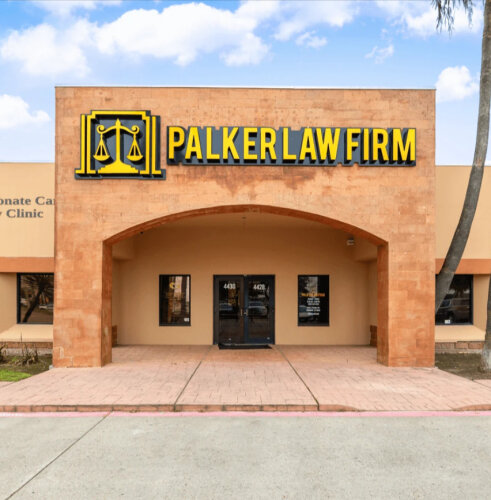Best Defamation Lawyers in Edinburg
Share your needs with us, get contacted by law firms.
Free. Takes 2 min.
List of the best lawyers in Edinburg, United States
About Defamation Law in Edinburg, United States
Defamation is the legal term for a false statement presented as fact that harms a person or business reputation. In Edinburg, the law on defamation follows United States constitutional principles and the law of the State of Texas. Defamation comes in two common forms - libel and slander. Libel covers written or published false statements. Slander covers spoken false statements. Online postings, social media messages, reviews, newspapers, broadcasts and spoken words can all be evaluated as potential defamation depending on the circumstances.
Laws balance two important public interests - protecting reputations and protecting free speech. Public-figure plaintiffs face a higher burden of proof in many cases because of First Amendment protections. For private individuals, the legal standards are different and often more favorable to a claim for defamation.
Why You May Need a Lawyer
Defamation claims raise factual, legal and strategic issues that make legal help especially valuable. An attorney can help you in several common situations:
- If you believe a false statement online or in print is causing real damage to your personal life, business or livelihood and you want to explore legal remedies.
- If you have been accused of making defamatory statements and are facing a threat of suit or an actual lawsuit.
- When evidence must be preserved quickly - for example, social media posts that may be deleted or altered.
- If you need a carefully worded demand letter, retraction request or correction that follows local law and does not make things worse.
- If you are a public official, public figure or business owner and must navigate higher legal standards such as the actual malice doctrine.
- If the situation might involve a complex defense like privilege, opinion and rhetorical hyperbole, or if free-speech defenses under state or federal law apply.
- To evaluate possible damages, including actual damages, presumed damages for defamation per se, and potential punitive damages in cases of malice.
Local Laws Overview
Edinburg is in Hidalgo County in the State of Texas. When evaluating defamation claims in Edinburg, keep these local and state aspects in mind:
- Elements of a defamation claim: a false statement purporting to be fact, publication to at least one third party, fault by the speaker or publisher, and damages or an actionable category of harm.
- Truth is a complete defense. If the statement can be proven true, the defamation claim typically fails.
- Public-figure and public-official plaintiffs must generally show actual malice - that the speaker knew the statement was false or acted with reckless disregard for the truth. Private plaintiffs usually must show negligence or a lower fault standard.
- Defamation per se categories can allow recovery of presumed damages without proof of specific monetary loss. These typically include false assertions that someone committed a crime, has a contagious disease, engaged in serious sexual misconduct, or is incompetent in business or profession. Texas law recognizes similar categories.
- Privileges can protect certain statements. Absolute privilege generally covers statements in judicial or legislative proceedings. Qualified privilege can protect certain communications made in good faith on a matter of public interest or in specific settings, although it can be lost if abused.
- Texas has an anti-SLAPP law called the Texas Citizens Participation Act - TCPA. It can provide a special procedural tool for dismissing lawsuits that target individuals for communicating on matters of public concern. Procedural protections under the TCPA can affect strategy and timing in defamation disputes.
- Statute of limitations - timing matters. Many defamation claims in Texas must be filed within a short period from the date of publication. It is important to act promptly to preserve legal rights.
- Venue and courts - defamation cases involving residents of Edinburg will typically be filed in Hidalgo County state courts, including county courts at law or district courts depending on the damages and case nature. Cases raising federal constitutional issues or involving out-of-state defendants may involve federal courts, including the Southern District of Texas.
Frequently Asked Questions
What is the difference between libel and slander?
Libel is defamation in a fixed medium - typically written text, published articles, online posts, photographs with false captions and recordings. Slander is transitory spoken statements. Many jurisdictions treat libel as more harmful if it is widely circulated or permanent, but both can give rise to a legal claim.
How do I know if a statement is legally defamatory?
A statement may be defamatory if it is a false factual assertion, published to a third party, and it harms your reputation. Statements of pure opinion or rhetorical exaggeration are often not actionable. Whether a statement is factual or opinion depends on context and how a reasonable listener or reader would interpret it.
Can I sue for negative online reviews?
It depends. Honest negative reviews that express opinion or truth are generally protected. False factual claims in a review that damage reputation can be actionable. You will need to show the review contains false statements presented as fact, and you must consider the costs, proof of damages and possible defenses by the reviewer.
What defenses will the other side likely use?
Common defenses include truth, opinion, privilege, absence of fault, lack of publication, and First Amendment protections. If you are a public figure, the defendant may argue the actual malice standard. In many cases defense counsel will also raise procedural defenses such as statute of limitations or forum objections.
How long do I have to file a defamation lawsuit?
Deadlines vary by state. In Texas, the time to file a defamation suit is relatively short. Because timing is critical and deadlines can bar claims, consult an attorney promptly. Waiting too long can eliminate your right to sue.
Can I get an injunction to stop someone from posting false statements?
Courts are cautious about issuing injunctions that restrict speech because of free-speech concerns. Preventing future false statements is sometimes possible in narrow circumstances, but many courts prefer remedies like damages or retractions. An attorney can evaluate whether immediate injunctive relief is a realistic option in your case.
What kinds of damages can I recover?
You may be able to recover actual damages such as lost income, loss of business, emotional distress and harm to reputation. In cases that qualify as defamation per se, certain damages may be presumed. Punitive damages may be available when the defendant acted with malice or egregious conduct.
Should I send a demand letter first?
A well-drafted demand letter or request for retraction can resolve many disputes without litigation. A lawyer can draft a letter that preserves your rights, requests an apology or correction, and sets a deadline. Sending a letter can also be a prerequisite for some remedies, but in some situations immediate legal action may be required to preserve evidence.
What if I made the statement but want to avoid a lawsuit?
If you are accused, do not delete evidence, and do not make additional public statements. Consult an attorney right away. Possible options include issuing a carefully worded retraction, negotiating a settlement, or asserting defenses if the claim is weak or barred by privilege or First Amendment protections.
How do I find the right lawyer in Edinburg?
Look for an attorney with experience in defamation, media law or civil litigation. Consider whether they handle local cases in Hidalgo County or federal cases in the Southern District of Texas. Ask about experience with online defamation, trial experience, fee structure and case strategy. You can use state bar referral services, local bar associations and law school clinics to identify options.
Additional Resources
State Bar of Texas - lawyer referral and resources for finding an attorney in Texas.
Hidalgo County Clerk - filing and court records information for cases in Edinburg and Hidalgo County.
Southern District of Texas - information on federal court rules and filings for cases that may belong in federal court.
Texas RioGrande Legal Aid - local legal aid organization that may provide limited assistance or referrals.
University of Texas Rio Grande Valley School of Law - clinics and legal assistance programs that sometimes help with local civil matters and community legal education.
Texas State Law Library - legal research resources for state statutes, case law and procedural rules.
Reporters Committee for Freedom of the Press and similar organizations - resources on free-speech and media law issues that inform defamation disputes.
Next Steps
1. Preserve evidence now. Save screenshots, photographs, recordings, web pages, emails and any witness information. Note dates, times and any steps you took to correct or respond to the statements.
2. Avoid public responses. Do not post heated rebuttals or delete posts without consulting counsel, because removal or additional statements can affect the case and evidence.
3. Document damages. Record any business losses, lost opportunities, cancelled contracts, and emotional impact. Gather records that support actual damages.
4. Contact an experienced local attorney. Ask about their experience with defamation, media law, online speech and local courts. Discuss timelines, likely outcomes and fee structures - including contingency, flat-fee or hourly arrangements.
5. Consider nonlitigation options. A demand letter, negotiated retraction or correction, mediation or an apology can resolve many disputes faster and with less expense than trial.
6. Act promptly. Defamation claims are time-sensitive. Early legal advice helps preserve claims, limits further harm and identifies the best strategy tailored to your situation.
Please note - this guide provides general information and is not legal advice. For advice about your specific situation contact a qualified attorney licensed in Texas who can analyze the facts and applicable law.
Lawzana helps you find the best lawyers and law firms in Edinburg through a curated and pre-screened list of qualified legal professionals. Our platform offers rankings and detailed profiles of attorneys and law firms, allowing you to compare based on practice areas, including Defamation, experience, and client feedback.
Each profile includes a description of the firm's areas of practice, client reviews, team members and partners, year of establishment, spoken languages, office locations, contact information, social media presence, and any published articles or resources. Most firms on our platform speak English and are experienced in both local and international legal matters.
Get a quote from top-rated law firms in Edinburg, United States — quickly, securely, and without unnecessary hassle.
Disclaimer:
The information provided on this page is for general informational purposes only and does not constitute legal advice. While we strive to ensure the accuracy and relevance of the content, legal information may change over time, and interpretations of the law can vary. You should always consult with a qualified legal professional for advice specific to your situation.
We disclaim all liability for actions taken or not taken based on the content of this page. If you believe any information is incorrect or outdated, please contact us, and we will review and update it where appropriate.










